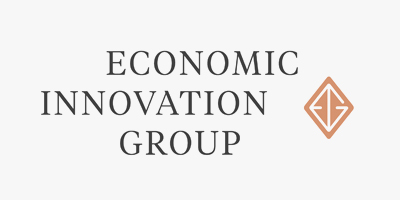Today, the Economic Innovation Group (EIG) released a new paper, “The Use, Abuse, and Enforceability of Non-Compete and No-Poach Agreements: A Brief Review of the Theory, Evidence, and Recent Reform Efforts.” The paper, authored by University of Maryland Smith School of Business Professor Evan Starr, one of the nation’s leading experts on the subject, explores the growing proliferation of non-compete and no-poach agreements and their impact on the economy and labor market. It brings the debate fully current, incorporating the latest empirical evidence and policy developments in this rapidly-moving issue area.
Professor Starr said, “Over the last several years I’ve been working to provide empirical evidence to address a 600-year-old debate over non-competes: Should courts favor the worker’s freedom to move, or private parties’ freedom to contract? Although there is still much to learn, the research summarized in this brief points to a growing consensus on the harms that enforcing non-competes can have on workers, firms, and regions.”
Against the backdrop of declining dynamism in the U.S. economy, a growing body of evidence demonstrates that these provisions often deter entrepreneurship, depress wages, and slow labor market churn. As a result, there is an emerging bipartisan consensus on the need for reform.
“The evidence is increasingly clear: If policymakers want to boost wages, increase entrepreneurship, and spur innovation, they should start by restricting the use of non-competes and no-poach agreements,” said John Lettieri, co-founder and CEO of the Economic Innovation Group.
Key takeaways include:
- Non-competes are increasingly pervasive: One in five employees, or approximately 32 million Americans, are currently bound by a non-compete. In total, 38 percent of workers have signed at least one non-compete agreement in the past.
- No-poach agreements have proliferated too: No-poach agreements cover nearly 60 percent of major franchises in the United States today, up from 36 percent in 1996.
- Non-competes reduce entrepreneurship: Greater enforceability of non-competes reduces new firm entry by 18 percent. The firms that do start tend to have fewer employees at launch and are more likely to die in their first 3 years. Ones that survive still tend to remain smaller for their first 5 years. The threat of enforcement appears to particularly dampen entrepreneurship among women.
- Non-competes enforcement hurts worker wages: Workers in states that enforce non-competes earn less than equivalent workers in states that do not enforce them.
- Non-competes deter workers from finding better opportunities: Workers bound by a non-compete stay in their jobs 11 percent longer with no offsetting increase in pay or satisfaction.
- Non-competes likely slow the pace of innovation: Non-competes obstruct the flow of knowledge by restricting the churn of workers among firms. They make venture capital less effective in spurring new patents and job growth.
- Negotiations are rarely balanced or transparent: Less than 10 percent of workers negotiate over the terms of the non-compete. When asked to sign a non-compete, 93 percent of workers simply read and sign. 30-40 percent of workers who are asked to sign non-competes are first asked after they have already accepted the job.
- Non-competes are inefficient: 11 percent of those who sign one are forced to find work in a different industry after they leave their job.
Since 2016, more than 20 state and federal bills have been proposed to increase workers’ freedom to choose their own employer.
To explore the evidence and policy recommendations further, read the full issue brief, “The Use and Abuse of Non-Competes and No-Poach Agreements.”
About the Economic Innovation Group (EIG)
The Economic Innovation Group (EIG) is an ideas laboratory and advocacy organization whose mission is to advance solutions that empower entrepreneurs and investors to forge a more dynamic American economy. Headquartered in Washington, D.C., EIG convenes leading experts from the public and private sectors, develops original policy research, and works to advance creative legislative proposals that will bring new jobs, investment, and economic growth to communities across the nation. For more information, visit eig.org.






